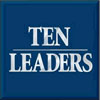New Jersey's Randy Neumann is by all accounts one of the region's premier independent financial planners, whose uniquely American life story reflects a character and determination rare among even the most successful professionals. Competitive and self-reliant from an early age, the Cliffside Park native worked his way through college as a professional boxer, and not simply as an anonymous journeyman: Neumann boxed his way into the elite of the sport, earning a national (6th) - and world (9th) - ranking as a heavyweight by the age of 28.
Today, a financial planner and advisor for more than 30 years, and a skilled and published writer, Neumann possesses a serene and humble manner that both attracts and reassures clients. "Most financial planners don't have boxing posters on their office wall," says Neumann. "The qualities that made me a good boxer - discipline and persistence - have defined me ever since."
The son of a WWII veteran who flew B-25 bomber missions over Europe, Neumann grew up near the famed Palisades Amusement Park, where he worked as a lifeguard as a teen and occasionally "punched the heavy bag." And he was naturally tough: "I detested bullies. My mantra growing up was: 'Put the bullies out of business.'" While attending classes on New York's West Side, Neumann, then 18, dropped in at the 64th Street Y, where a sparring ring was always busy. He pummeled opponents, who encouraged him to try another venue: The renowned Gleason's Gym in the South Bronx. There, "I was the only blue-eyed boxer in the place. The guys were street tough, but all were interesting and smart."
By his second year of college, Neumann had racked up an impressive amateur record of 14 wins and 2 losses, including Golden Gloves appearances at Madison Square Garden. He went pro, in part, because "I might as well make some money, and I had tuition payments due. My mother wasn't real happy about it though." Neumann received his business degree while commuting five days a week to "my office" at Gleason's, where he refined his skills as a "skinny" heavyweight. He became a popular fixture. "Some of the locals rooted for me because they thought I was Jewish." Quick and agile, he gained a reputation as a "clever" fighter who jabbed effectively and never was reckless with larger opponents; the strategy rewarded him in the ring, but promoters groused, "The public doesn't want a clever fighter."
After turning pro, Neumann, in keeping with a stubbornly independent spirit, at one point became his own manager, negotiating his own earnings - "Not something I'd recommend to anyone. I think I made $15,000 a year." On March 8, 1974, he fought rising star Chuck Wepner; 21 months later, in his final fight, he lost in a technical knockout to Duane Bobick, the one-time amateur champ. Neumann's Wikipedia page (which refers mostly to his current stature as a respected boxing referee) posts a pro career record of 31 wins and 7 losses.
Returning to Cliffside Park and newly married, and after a brief stint in the U.S. Army, he was offered to manage a branch of Garden State Bank. Two years later he launched his own financial planning practice. He hasn't looked back. Neumann today has a diverse group of clients, but they share a single concern - "they are either preparing for retirement or want to make sure they stay retired." For years he has written extensively - mostly about financial planning .
Still fit and energetic, Neumann keeps sets of dumbbells in his Paramus office; he's supported by a "first-rate" group -- an estate-planning attorney and a CPA firm, as well as a staff that includes his wife Kathleen. The Neumanns live in nearby Ridgewood, and have four children. Neumann continues to play a prominent role in boxing; he has refereed some of the sport's biggest-name heavyweight fights, including those of Mike Tyson and Evander Holyfield. He loves his place in the ring today: "It's boxing without the pain."

Fax: (201) 291-9799
Fairleigh Dickinson University, B.A., Business Administration, 1975



